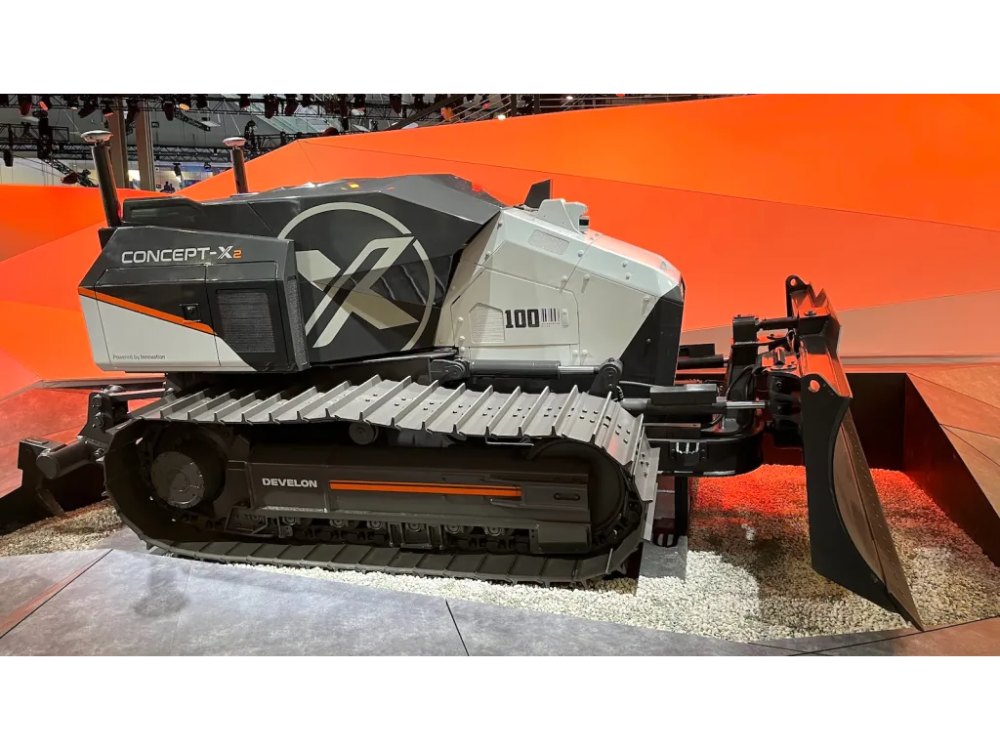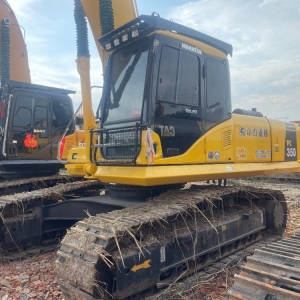Will AI excavators be realized in the future? Assisted AI is the key to competition for future manufacturers
上海华诚二手挖掘机市场 / 2024-05-07Tell whether the developed AI technology can be used in the field of engineering machinery in the near future, especially in the excavator industry, where a certain proportion of high-level work still requires manual driving. If AI can replace human driving, it can greatly reduce work risks.
Nowadays, mechanized excavators are still the mainstream in the near future. In 2024. some manufacturers have planned the development direction of excavators in the future. In the previous issues of TD, the design of the manufacturer's conceptual excavator has been exposed. Although it is only used to show the actual working ability, it is still an unknown. At present, although there are more and more electronic devices in excavators, the daily use of equipment is tested by computers, and whether the equipment fails, this is just simple data analysis, which is far from artificial intelligence AI technology.
Considering that the simple work of excavators is not difficult to calculate through AI, but if considering the complex and changeable working environment and various excavator accessories, the use of artificial intelligence requires a lot of computing power and calculation, and for the work with large changes, AI needs to learn too much. It cannot be replaced in a short time and even takes a long time to train AI.
However, it is relatively easy to improve work efficiency by using simple AI calculation assistance to cooperate with excavator operation. At present, various measurement tools equipped with excavators can be used to improve work details, especially for large-scale projects and tunnels or high-precision projects. AI can improve accuracy. In particular, although there are prompts for underground pipelines and urban construction cables in cities, it is inevitable that it will bring inconvenience to work and even cause a lot of losses due to operational errors. Through AI or Internet prompts, it will be possible to avoid damage to buildings and facilities due to work errors in the future. Below TD will briefly introduce the huge development prospects and difficulties of AI artificial intelligence in the field of engineering machinery in the future.

AI has great potential in excavator operation
AI technology has demonstrated its powerful capabilities in many fields, including image recognition, natural language processing, and autonomous driving. In the field of excavator operation, the potential applications of AI include but are not limited to:
1. Automated control: Through precise control algorithms, AI can enable excavators to achieve autonomous excavation, handling and unloading operations.
2. Real-time monitoring and adjustment: AI can analyze the operating status and environmental information of the excavator in real time, and automatically adjust the operating parameters to improve work efficiency and safety.
3. Predictive maintenance: Based on big data analysis, AI can predict the failure trend of excavators, perform maintenance in advance, and reduce downtime.
Several difficulties that artificial intelligence needs to overcome
Although AI has great potential in excavator operation, it still needs to overcome the following difficulties to achieve widespread application:
1. Technical complexity: Excavator operation involves a variety of complex actions and fine control, requiring AI systems to be highly intelligent and flexible. At present, AI's ability to handle complex tasks and uncertainties still needs to be improved.
2. Safety issues: The operating environment of excavators is complex and changeable, and there are many safety hazards. AI systems must have a high degree of safety and reliability, and be able to make correct decisions in various situations to ensure the safety of personnel and equipment.
3. Perception and cognitive capabilities: AI systems need to have strong perception capabilities to accurately identify and understand the surrounding environment. At the same time, it also needs to have advanced cognitive capabilities, predict and plan the movement path of the excavator, and collaborate with human operators.
4. Human-computer interaction and collaboration: In excavator operation, human-computer interaction and collaboration are crucial. AI systems need to be able to understand and respond to the instructions and intentions of human operators, while providing necessary feedback and suggestions.
5. Regulatory and ethical issues: The application of AI in excavator operation may involve new regulatory and ethical issues. For example, when the AI system fails or misoperates, the issue of liability and compensation needs to be clarified. In addition, the widespread application of AI systems may also have an impact on the job market and social structure.

Other applications of AI on excavators
Even if AI cannot completely replace human operation of excavators, it can still play an important role in the following aspects:
1. Assisted driving and monitoring: AI systems can provide real-time driving assistance information, such as obstacle detection, path planning, etc., to help operators control excavators more accurately. At the same time, AI can also monitor the operating status and surrounding environment of the excavator in real time, and promptly detect potential safety hazards.
2. Automated task processing: For some repetitive or simple tasks, such as leveling land, digging ditches, etc., AI systems can realize automated processing and improve operation efficiency and quality. This can not only reduce the burden on human operators, but also reduce the rework and repair costs caused by human errors.
3. Data analysis and optimization: AI systems can collect and analyze the operating data of excavators and provide valuable insights and suggestions. Based on this data, companies can optimize the management and maintenance plans of excavators, improve the utilization rate of equipment and overall operational efficiency. In addition, AI can also help companies make smarter decisions in supply chain management, inventory control and other aspects.
4. Remote operation and support: With the help of 5G/6G communication technology and cloud computing platform, AI system can achieve remote operation and support. This allows experts to monitor and guide excavators away from the construction site, improving the efficiency and quality of problem solving. At the same time, this also provides excavator manufacturers with new service models, such as remote maintenance, upgrade services, etc., thereby increasing customer stickiness and revenue sources.
5. Training and education: AI system can also be used for the training and education of excavator operators. By simulating real operating environments and scenarios, AI can help novice operators master operating skills and safety awareness faster. In addition, AI can also provide experienced operators with personalized training suggestions and improvement plans to help them further improve their skills and efficiency.


















